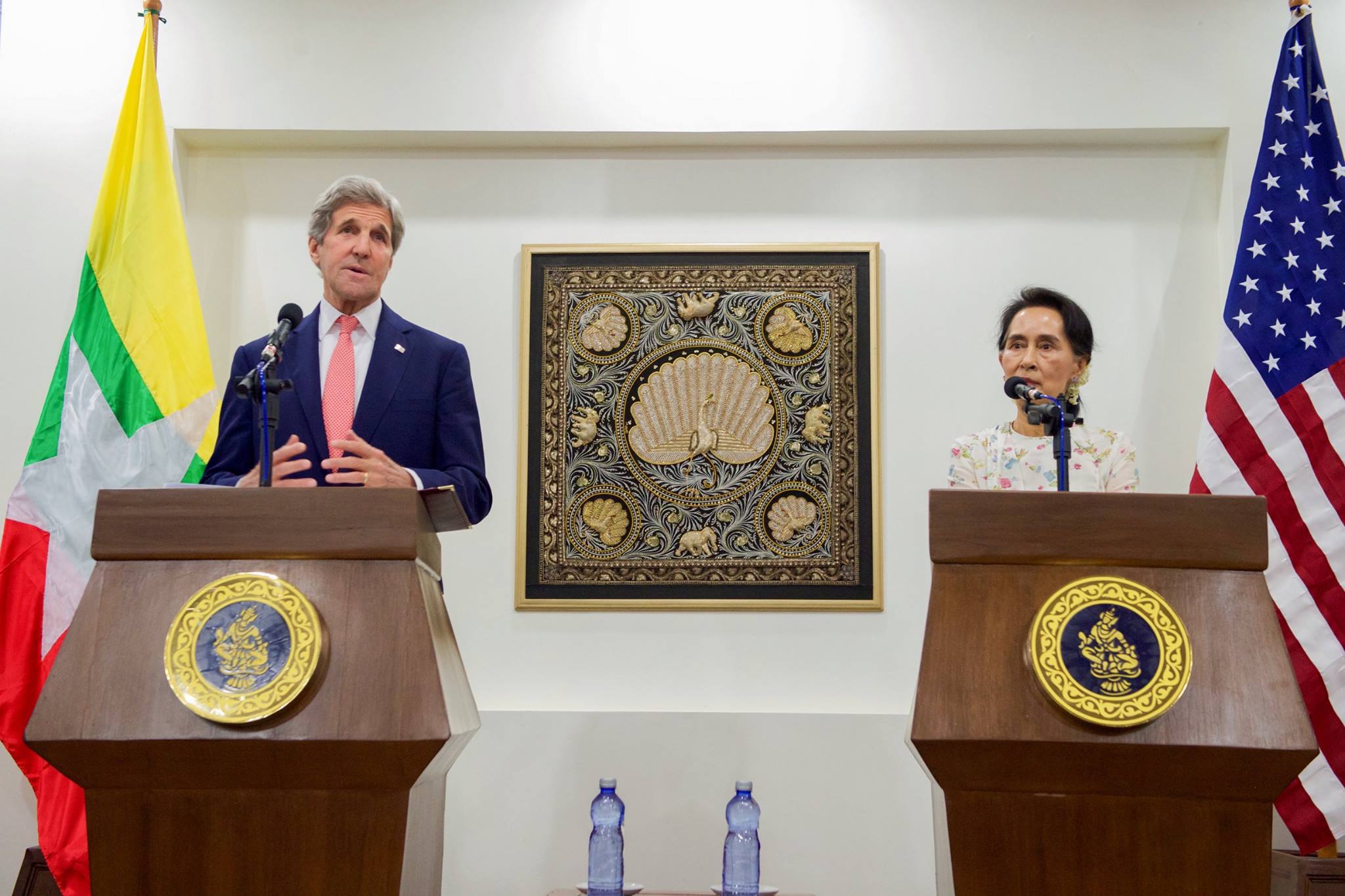The US government has revised its mandatory reporting requirements for investing in Burma, significantly reducing the number of firms that will have to comply with regulations aimed at promoting transparency and strengthening human rights in Burma.
Under rules put in place in 2013, US companies that invested more than US$500,000 in Burma had to meet reporting requirements that would, in the words of the US government, “encourage and assist” them to address “impacts resulting from their investments and operations in Burma.”
Since last week, however, only those investing in the oil and gas sector, or whose investments exceed $5 million, have to follow the reporting requirements. The new rules, which were introduced with little fanfare, were posted on the US embassy’s website on 24 June.
US firms that meet the reporting criteria are required to submit annual reports to the US government detailing information about their investment in Burma with “respect to human rights, workers’ rights, environmental stewardship, land acquisition, and other key areas for human rights due diligence in the Burma context.” Public versions of the reports are then posted on a US government website for public scrutiny.
A number of US firms, including Chevron, Coke, The Gap, Western Union and GE, have been filing these reports annually over the past three years.
In the lead-up to the old rules expiring last month, 60 different human rights, environmental and labour groups in both the US and Burma called for maintaining the $500,000 reporting threshold. Only two groups, the US Chamber of Commerce and it Burmese chapter, known as AMCHAM Myanmar, made submissions opposing the previous rules.
In a statement sent to US Secretary of State John Kerry on 16 June, Amnesty International and the Washington, DC-based US Campaign for Burma called the proposed move to a $5 million threshold “a huge step backwards [that] will undermine the effectiveness of the framework.”
The letter, which was also endorsed by the International Corporate Accountability Roundtable (ICAR), a coalition of human rights, environmental and labour groups, noted that the old rules were a “remarkable achievement” that allowed civil society to effectively monitor investment in Burma.
“Raising the threshold tenfold will undo the progress that has been made, work against the positive attributes of the Reporting Requirements, and seriously weaken the framework as a whole,” the letter warned, adding that this would increase the risk of undermining political and economic reforms.
Groups inside Burma were also strongly against the rule changes, which they said would undermine the efforts of civil society and the new National League for Democracy government to increase transparency and responsible investment.
“A return to secretive foreign investment in an economy that is still controlled by cronies and military-owned companies risks exacerbating conflict, land rights disputes, corruption and other serious human rights threats,” warned Tsa Ji, head of the Kachin Development Network Group (KDNG), a group that has closely followed developments in Burma’s notoriously opaque jade trade.
Washington-based legal advocacy group EarthRights International (ERI) also opposed the change to the reporting requirement, noting that only the US Chamber of Commerce and AMCHAM Myanmar came out against the existing rules.
“Individual US companies, including Coca-Cola and The Gap, have spoken up in support of the Reporting Requirements, and no individual company submitted a critique — but the Chamber still fights against it,” wrote Zamira Djabarova, a lawyer with the group, last week just before the new rules went into effect.
[related]
ERI has also filed Freedom of Information requests in an effort to unseal submissions made by the US Chamber and AMCHAM Myanmar, which unlike the submissions made by the rights groups in favor of maintaining the rules, remain secret.
The change is the most significant in US sanctions policy on Burma since May, when the US government delisted a number of Burmese state-owned firms ostensibly now under the control of the NLD. These include Mining Enterprise No 1, which was previously involved with a controversial mine near Monywa, and Myanmar Timber Enterprise, an entity implicated by environmentalists in rampant corruption and the wide-scale destruction of vast tracts of Burmese forest.



